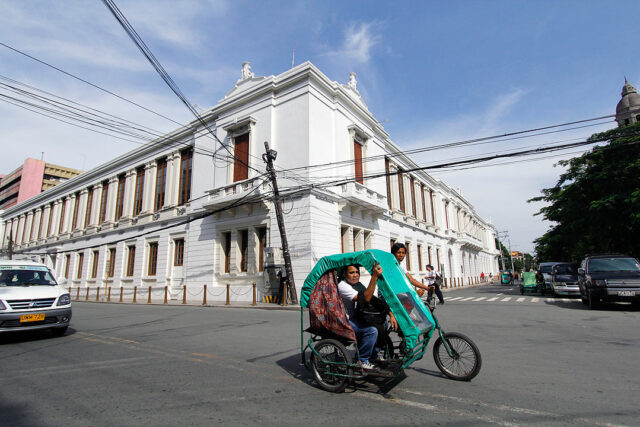Aside from the economic climate or the various fiscal and non-fiscal incentives that the country offers, another reason to invest in the Philippines is its ongoing policy reforms. These policy reforms signify the government’s willingness to work with investors and address their concerns. But it is important that these reforms be directed toward making business and tax compliance simpler and easier.
One of the more consistently identified factors in determining a country’s investment attractiveness is the ease of doing business in a country. It is not difficult to see why. An opaque and complicated system, especially in the fields of business and tax, are bound to result in some unnecessary costs which can be particularly hindering for businesses.
For instance, one of the major reforms that the Philippines needs to consider is the implementation of a risk-based audit.
In a recent investment mission in Germany, we joined the Philippine Economic Zone Authority (PEZA) and met not only with potential German investors but also existing locators in the Philippines. In these discussions, they identified some concerning issues, such as VAT refunds and the overly burdensome and costly nature of Bureau of Internal Revenue (BIR) audits. While they are given tax incentives, they are still subject to an annual audit that results in additional costs and taxes despite their tax incentive and full compliance.
The concept of a risk-based audit is in line with proposals by the World Bank, and what the idea entails is that higher-risk taxpayers are to be prioritized for audit. To understand what this entails, it is first important to understand how it presently works. Under the current system, the BIR audits businesses on a random basis, albeit with some priority cases. In this current system, the system is still predominantly random, with no particular direction on which taxpayers or what industries to focus on.
The adoption of a risk-based audit system is bound to improve efficiency as the BIR would have to direct its efforts to the taxpayers or the industries which have lower compliance rates and with a significant amount of tax exposure. With the developments in the field of digitalization, it is now easier to gather data on these industries and to be able to make informed and data-driven compliance thresholds.
Of course, the key will be digital transformation. Given the predominance of electronic transactions in recent years, all the relevant data are readily accessible. What is left is to consolidate the data and analyze them to identify taxpayer risks and compliance performance.
Another byproduct of a risk-based system is an increased trust in the government. The present random BIR audit is susceptible to abuse because unscrupulous officers can simply target certain taxpayers and hide behind the guise of “randomness.” However, this will not be the case in a risk-based system because tax collectors would have no discretion on who to audit, since the ones that are required to audit are only those that have poor tax compliance or are considered “high-risk.”
In line with a risk-based system is the need to improve the tax regime for micro-, small- and medium-sized enterprises (MSMEs) amending its classification under the Ease of Paying Taxes (EOPT) Act. These businesses are hardly the main source of the government’s funds, and yet they are subject to the same stringent compliance requirements that larger businesses are subjected to. The difference is that larger businesses can bear those compliance costs, whereas MSMEs may have difficulties in doing so.
It is important that the government’s approach to MSMEs is not to treat them as a source of funds. Rather, MSMEs should be viewed as investments that the government should help succeed. Once these businesses prosper, it is only then that the government should shift gears and focus on collecting taxes from them.
The simplified Tax Regime for Micro & Small Enterprises include the following:
1. Reclassification of taxpayers based on their income level and total assets — an amendment to the EOPT Act;
2. Reduction of the highest income tax rate from 35% to 25% for individuals both for employees and self-employed and professionals — an amendment to the TRAIN Act;
3. Increase the optional tax rate from 8% to 10% and its threshold from 3 million to 50 million-100 million (micro to small taxpayers) — an amendment to TRAIN and the CREATE Act;
4. Mandate use of e-invoicing for medium enterprises and taxpayers who will elect an Optional 10% flat rate — an amendment to the TRAIN and CREATE Act;
5. Removal of the manual Books of Accounts for Micro and Small Enterprises (or Taxpayers) and mandatory use of Computerized Accounting System and electronic invoicing for Medium and Large Taxpayers — amendment to the EOPT Act;
6. Exemption of Marginal and Micro Enterprises or Taxpayers from regular audit and instead subject them to Tax Verification without penalties as the need arises, specifically the newly registered enterprises while Small Enterprises, will be subject to risk-based audit, and Medium Enterprises, including those who avail of tax incentives, will be subject to risk-based audit and regular audit every three years. Large Enterprises will be subject to risk-based audit and regular audit every other year — the risk-based and regular audit will be both computerized and no longer adopt any manual investigation, except for a fraud audit which may require more evidence — amendment to the CREATE and EOPT Act;
7. Revocation of the Certified Public Accountant license for external auditor/s who audit and sign audited financial statements (AFS) that are materially misstated, i.e., have erroneous balance of total assets and/or annual sales, leading to a wrong classification of taxpayers to avoid paying taxes or being audited.
Toward this end, the adoption of a simplified tax regime for MSMEs is crucial to improving the business climate. As a broad overview, a simplified tax regime for MSMEs entails the removal of unnecessary tax compliance requirements for Micro and Small Enterprises and implementing risk-based computer-assisted audit against small, medium, and large taxpayers.
At the core of these proposals is the idea of creating an investment climate where businesses can thrive and business owners are not hassled by unnecessary and non-value adding compliance requirements.
When thinking of business and investment, it is easy to get lost in the big policy considerations, but it is just as important to address issues on the ground. The fact of the matter is that, despite improvements to its ease of doing business, the Philippine business and investment bureaucracy still has plenty of room for improvement. These two proposals are directed toward addressing some of those issues, particularly in the field of taxation.
In light of all this, it is important that we work together with government agencies in making paying taxes easier and doing business simpler. This is why the Asian Consulting Group remains steadfast in its cooperation with the BIR by facilitating dialogue and public discussion regarding new tax policies and helping taxpayers, especially foreign investors, understand and adapt to existing tax rules and new regulations.
This article reflects the personal opinion of the author and does not reflect the official stand of the Management Association of the Philippines or MAP.
Raymond “Mon” A. Abrea is an MPA/Mason fellow at Harvard Kennedy School. He is a member of MAP Tax Committee and MAP Ease of Doing Business Committee, the co-chair of Paying Taxes on the Ease of Doing Business Task Force, and chief tax advisor of ACG.
map@map.org.ph
mon@acg.ph












